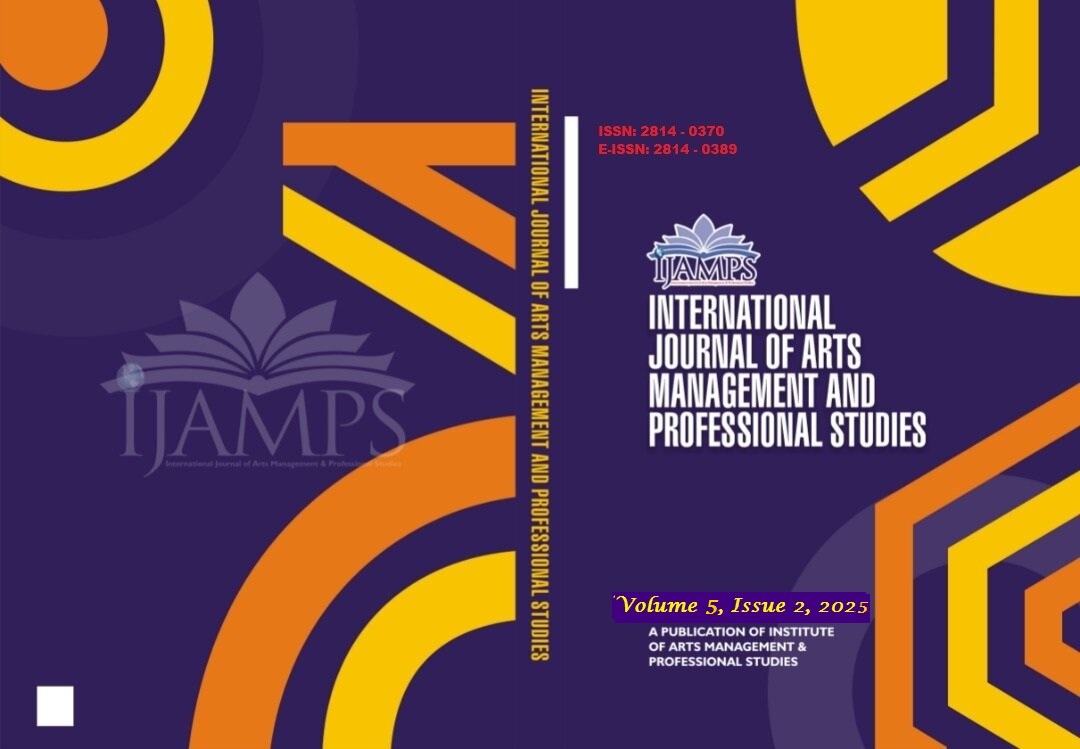
IMPROVISATION IN THEATRE-IN-EDUCATION: A CRITICAL REVIEW OF PEDAGOGICAL PRACTICES AND PERFORMATIVE LEARNING
Oluwatoyin Omolayo OGUNKUNBI, Aderonke Kaosar ADEJARE
Volume 5, Issue 2, June 2025
Theatre-in-Education (TIE) has long been recognised as a dynamic medium for facilitating interactive learning, social awareness, and critical thinking. At the heart of many successful TIE interventions lies the improvisation technique, a creative, unscripted process that fosters spontaneity, collaboration, and embodied participation. This article explores the transformative potential of improvisation within TIE as a strategy for reimagining pedagogy, particularly within Nigerian classrooms. Anchored in Paulo Freire's theory of dialogic education and John Dewey's experiential learning model, the paper argues that improvisation shifts the classroom from a site of passive knowledge transfer to one of co-construction, reflection, and democratic engagement. The study highlights how improvisational techniques enhance learner cognition, emotional expression, social empathy, and civic consciousness through a literature-based analysis and illustrative references to initiatives such as Footprints of David Arts Academy and Kininso Koncepts Production. It also examines the historical evolution of improvisation in educational theatre, its resonance with constructivist pedagogy, and its adaptability across diverse cultural and curricular contexts. While acknowledging structural barriers such as inadequate teacher training, rigid curricula, and policy inertia, the paper affirms that improvisation offers a flexible, inclusive, and impactful pedagogical model when purposefully integrated into TIE practice. Ultimately, the study contends that improvisation is not merely a theatrical device but a vital educational tool that fosters creativity, critical thinking, and participatory learning in Nigerian education.